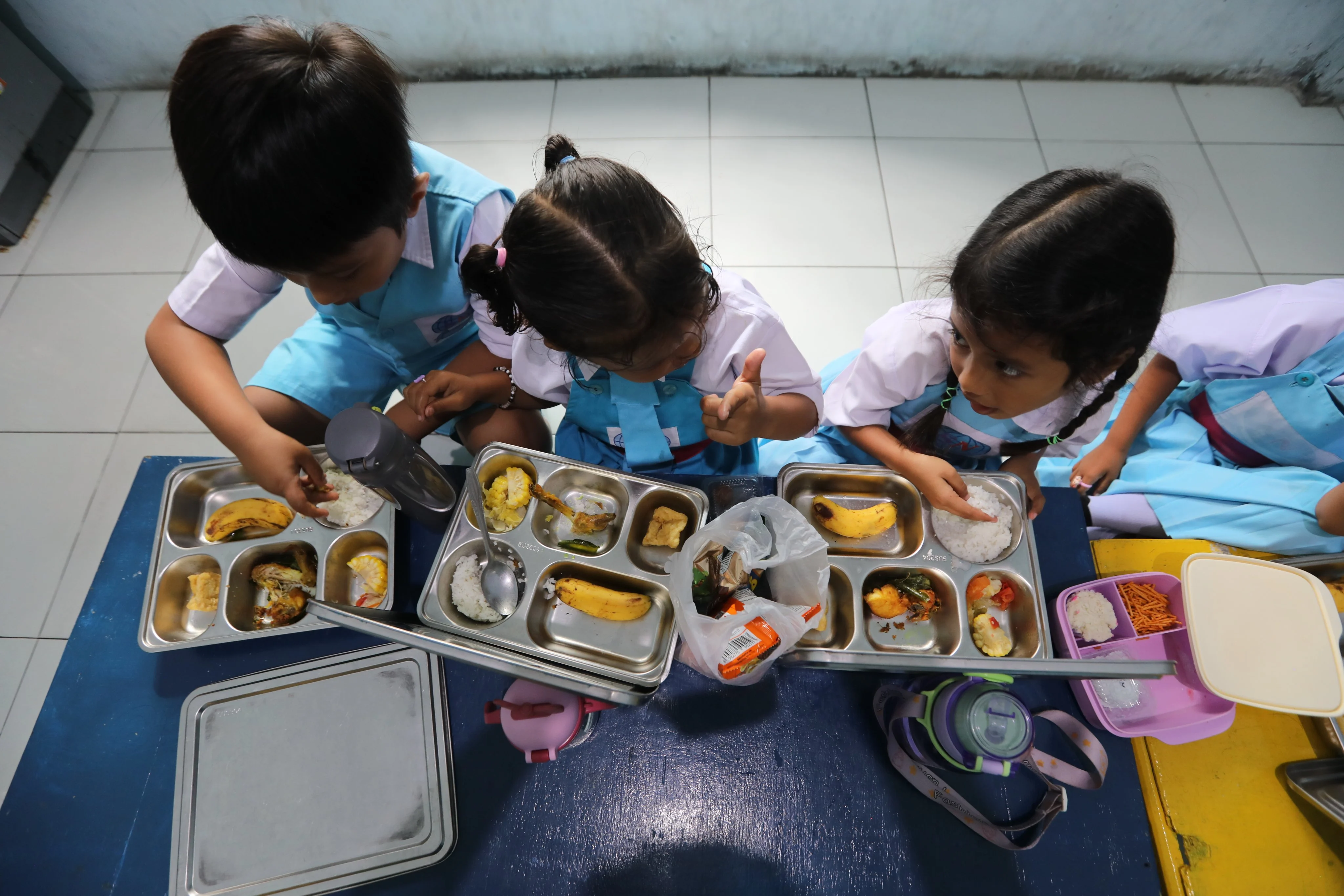By SCMP’s Asia desk
Copyright scmp

Indonesia’s well-intentioned free meals programme for schools has come under fire again – not for food poisoning, but for ingredient choice. In West Kalimantan, where 25 students fell ill last week, critics are biting in their assessment of one of the dishes served – fried shark.
Over 6,000 students have reportedly come down with food poisoning since January's launch of the nutritious lunch scheme, which aims to cover more than 80 million children, pregnant women and breastfeeding mothers by next year.
While the cause has been traced to contaminated fried tofu, chicken in soy sauce and a number of fruit and vegetable dishes, administrators at a school in Ketapang blamed the food poisoning on the dish of shark fillet with tomato sauce on the menu.
Critics questioned why the fish, with its potentially high mercury content, was selected to feed the children, prompting a rebuttal from the authorities.
Indonesia’s National Nutrition Agency Deputy Head Nanik Deyang said shark meat was part of the diet in that region.
“Shark meat is regularly served in the area. Unlike here in Jakarta, the meat is easy to get,” Nanik told local media last Thursday. “Whatever the menu, if it is consistent with local wisdom, then we should use it.”
Sri Hartini, the acting director of the Indonesian Forum for the Environment in West Kalimantan, told This Week in Asia that “shark is a fish commonly eaten in coastal areas due to its abundance and lower price”.
There were no ecological concerns “because the sharks consumed are commonly eaten sharks, not protected shark species”.
However, she added: “Shark is eaten not only in the Ketapang area but also in other coastal areas, so to interpret it as ‘local wisdom’ is rather narrow.
“If it is associated with local wisdom, it should fulfil cultural elements such as having a symbolic meaning. The processing technique should also be traditional and it should be easily obtained using traditional methods as well.”
Indonesian nutrition researcher Nurfi Afriansyah told This Week in Asia it was important to take a nuanced approach when discussing fish consumption and potential mercury poisoning in the government’s lunch scheme.
Some studies, Afriansyah said, had shown it was unclear if mercury exposure from typical fish consumption had any adverse health effects in prepubescent children.
In high levels, however, mercury exposure from fish can lead to neurological issues and can also damage the lungs, cardiovascular system and kidneys.
“What is clear is that fish consumption is significantly beneficial in reducing the risk of death from heart disease. Therefore, mercury exposure from fish consumption should not be a primary concern for prepubescent children,” he said.
However, as mercury could have “subtle effects” on a baby’s developing nervous system, he said pregnant women or those who wanted to conceive, breastfeeding mothers and very young children should avoid four types of fish with a higher mercury content: shark, swordfish, king mackerel and sea bass.
Plagued programme
The free nutritious lunch programme was meant to be the jewel in the crown of Prabowo Subianto’s presidency and was one of his campaign promises to tackle stunted growth in children.
The scheme has been plagued by repeated cases of mass food poisoning caused by incorrect food preparation and storage. Last week alone, more than 1,000 children in four different areas of West Java Province became ill, according to Governor Dedi Mulyadi.
Other issues include the slow roll-out of kitchens across the country to cook the food and reports of pork fat used in the making of some of the metal trays used to serve the lunches, causing them to be haram, or prohibited, in Islam.
Shards of glass were reportedly found in meals in Batam in the Riau Islands last Thursday after the glass lid of a pan shattered while eggs were being fried.
To date, the lunches have been rolled out to 20 million people across Indonesia. The programme cost US$10.2 billion this year, and is projected to be double that next year, according to the government.
Dicky Budiman, an Indonesian doctor, epidemiologist and expert in public health, told This Week in Asia that the serving of shark in West Kalimantan and subsequent suspected poisoning was “a contradiction of the aim of the free nutritious meal programme” and emblematic of wider issues.
“The programme was planned to increase nutrition and health but has the potential to be the gateway for toxins if the right foodstuff is not selected,” he said. “There is a lack of oversight and issues between the objectives of the programme and its implementation, from choosing the foods to preparing and storing them.”
He urged more robust quality control methods. “Food poisoning will make students ill with nausea and vomiting, which will affect their ability to study. It can also be fatal if not treated promptly,” he said.
“Public trust in the safety of the programme will be broken, and parents will forbid their children from eating the free food.”



